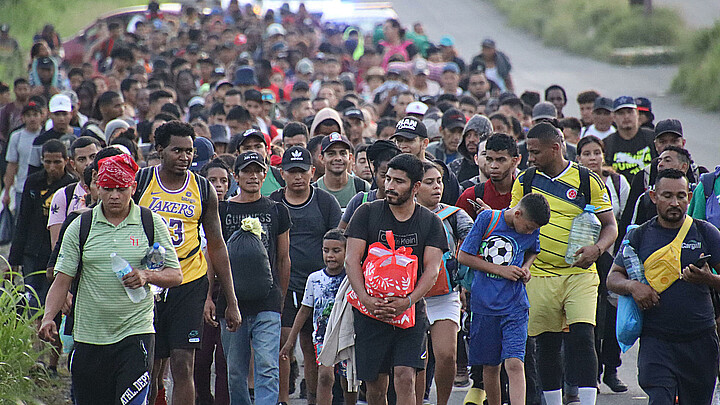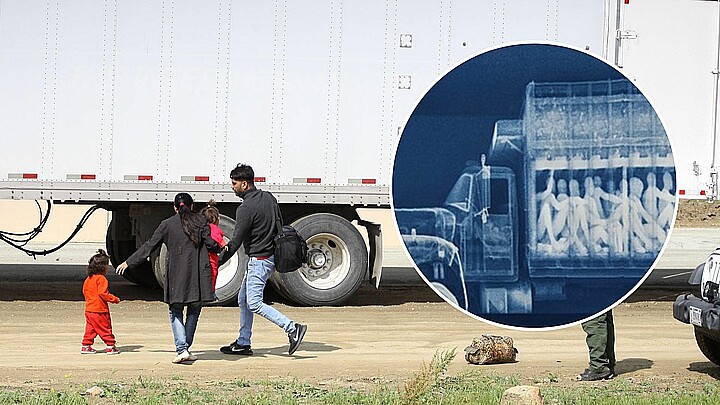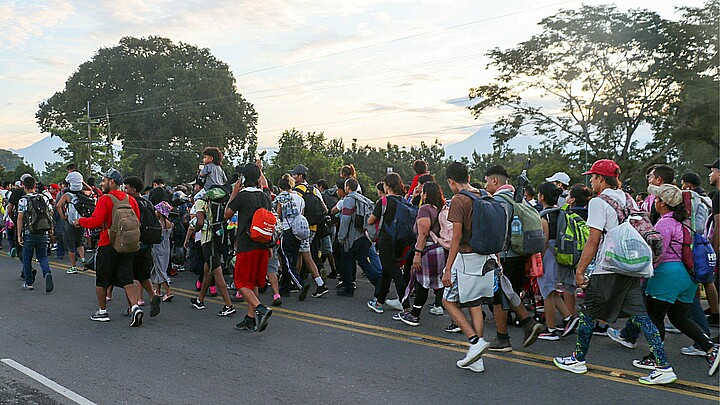Immigration
New Biden asylum restrictions could impact Mexico's border with Central America
The new measure could impact Tapachula, the largest city on the border of Mexico with Guatemala, because within the next four months the largest migratory flow of the year is expected

June 7, 2024 4:21pm
Updated: June 10, 2024 10:15am
Mexico's border with Central America may have an increase in migration flow as a result of new asylum restrictions and deportations imposed by the United States, as activists and migrants fear a new bottleneck in the region, leaving thousands of undocumented immigrants stranded there.
The new executive order signed on Tuesday by President Biden, “hands over the migrant community to organized crime, violence and to stay in Mexico for a few months,” warned People Without Borders Director Irineo Mujica Arzate in an interview with the EFE Spanish news agency.
“At the same time, they are not returning the migrant community to their countries of origin, they are throwing them to a dangerous place such as the northern border (of Mexico), completely co-opted by organized crime,” he explained in the conversation with the news agency.
The new measure directs those who do not pass asylum standards to be deported when the daily detention figure reaches 2,500 for an average of seven days. It came shortly after Biden issued an April 29 joint statement with Mexican president Andrés Manuel López Obrador pledged to continue working together to stem illegal migration.
“President Joe Biden and President Andrés Manuel López Obrador spoke by telephone on Sunday, April 28th about their continued commitment to strengthening bilateral and regional cooperation that will benefit the people of the United States and Mexico. The two leaders discussed how to effectively manage hemispheric migration, strengthen operational efficiency on our shared border, and thereby improve the security and prosperity of citizens of both countries,” The White House statement reads.
The immigration activist said he believed Biden’s sweeping change in immigration policy was the result of the upcoming presidential elections in November that will allow
As a result of the policy change and historical trends, he anticipated that Tapachula, the largest city on the border of Mexico with Guatemala, will have its largest migratory flow of the year since the U.S. plans to send many migrants to Mexico’s southern border.
Uncertainty is growing for migrants because the Mexican president has asked his northern neighbor to deport undocumented immigrants “directly” to their countries instead of Mexico, and he has even promised to cooperate by providing flights to repatriate them.
“We are helping to ensure that it is accepted in countries where they (the U.S.) do not have a good relationship, that they can take deportation measures, although we would not want them to deport anyone, because migration is not for pleasure, it is out of necessity,” the Aztec politician stated in his morning conference this Thursday.
For his part, López Obrador denied that his administration is toughening deportations due to pressure from the United States after a call he had on Tuesday with Biden.
Still, the shift in policy is significant since last year when the Mexican president denied a White House request to set up transit centers for those migrants passing through the North American country on their journey to reach the U.S. southwest border.
Still, irregular migration intercepted by Mexico tripled in the first quarter of the year to a record of almost 360,000 people.
“In the short term, the two leaders ordered their national security teams to work together to immediately implement concrete measures to significantly reduce irregular border crossings while protecting human rights. President Biden and President López Obrador also pledged to advance initiatives to address the root causes of migration throughout the Western Hemisphere, noting that increasing shared prosperity and security will be of critical importance in effectively addressing the migration challenge over the longer term.”










